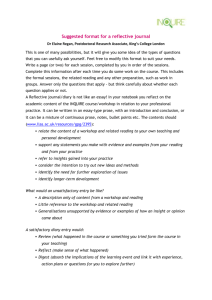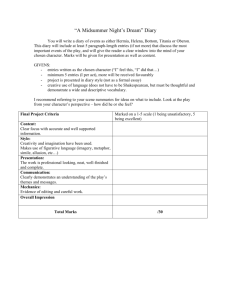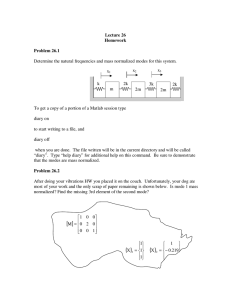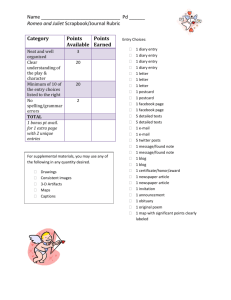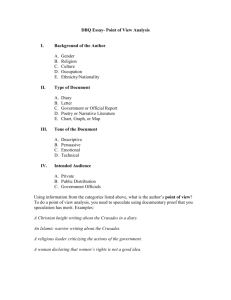KEEPING A RESEARCH DIARY
advertisement
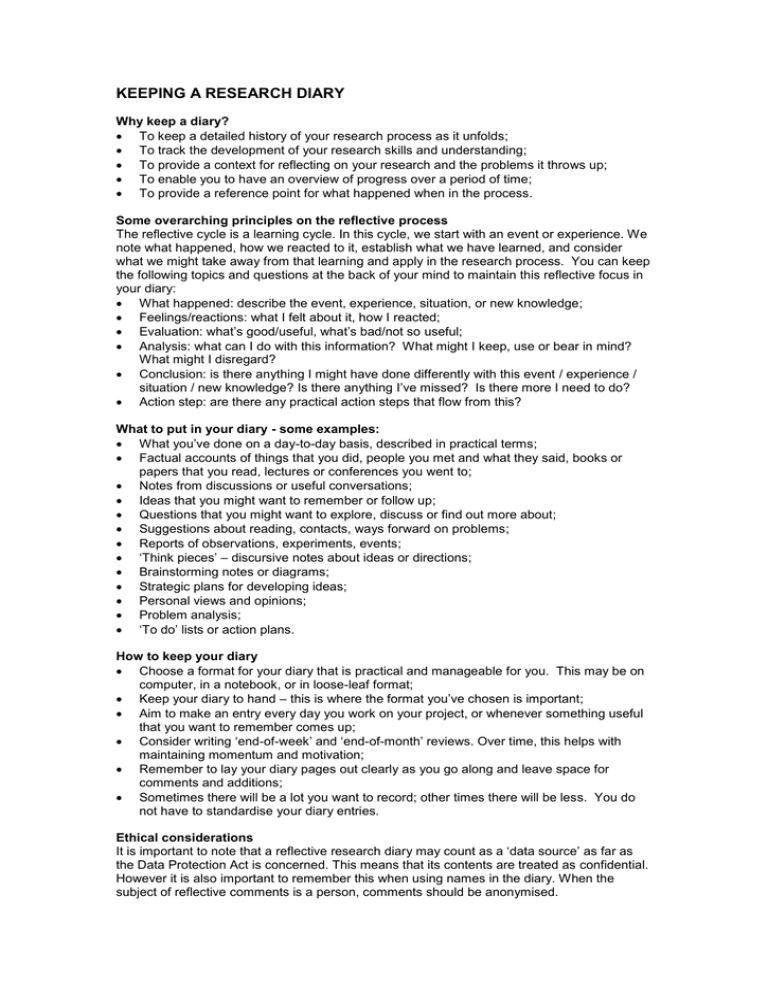
KEEPING A RESEARCH DIARY Why keep a diary? To keep a detailed history of your research process as it unfolds; To track the development of your research skills and understanding; To provide a context for reflecting on your research and the problems it throws up; To enable you to have an overview of progress over a period of time; To provide a reference point for what happened when in the process. Some overarching principles on the reflective process The reflective cycle is a learning cycle. In this cycle, we start with an event or experience. We note what happened, how we reacted to it, establish what we have learned, and consider what we might take away from that learning and apply in the research process. You can keep the following topics and questions at the back of your mind to maintain this reflective focus in your diary: What happened: describe the event, experience, situation, or new knowledge; Feelings/reactions: what I felt about it, how I reacted; Evaluation: what’s good/useful, what’s bad/not so useful; Analysis: what can I do with this information? What might I keep, use or bear in mind? What might I disregard? Conclusion: is there anything I might have done differently with this event / experience / situation / new knowledge? Is there anything I’ve missed? Is there more I need to do? Action step: are there any practical action steps that flow from this? What to put in your diary - some examples: What you’ve done on a day-to-day basis, described in practical terms; Factual accounts of things that you did, people you met and what they said, books or papers that you read, lectures or conferences you went to; Notes from discussions or useful conversations; Ideas that you might want to remember or follow up; Questions that you might want to explore, discuss or find out more about; Suggestions about reading, contacts, ways forward on problems; Reports of observations, experiments, events; ‘Think pieces’ – discursive notes about ideas or directions; Brainstorming notes or diagrams; Strategic plans for developing ideas; Personal views and opinions; Problem analysis; ‘To do’ lists or action plans. How to keep your diary Choose a format for your diary that is practical and manageable for you. This may be on computer, in a notebook, or in loose-leaf format; Keep your diary to hand – this is where the format you’ve chosen is important; Aim to make an entry every day you work on your project, or whenever something useful that you want to remember comes up; Consider writing ‘end-of-week’ and ‘end-of-month’ reviews. Over time, this helps with maintaining momentum and motivation; Remember to lay your diary pages out clearly as you go along and leave space for comments and additions; Sometimes there will be a lot you want to record; other times there will be less. You do not have to standardise your diary entries. Ethical considerations It is important to note that a reflective research diary may count as a ‘data source’ as far as the Data Protection Act is concerned. This means that its contents are treated as confidential. However it is also important to remember this when using names in the diary. When the subject of reflective comments is a person, comments should be anonymised.

